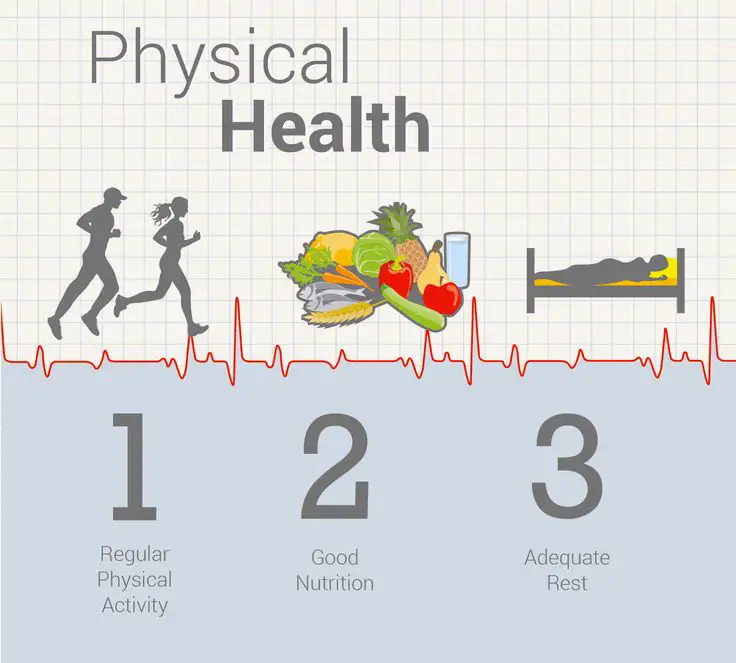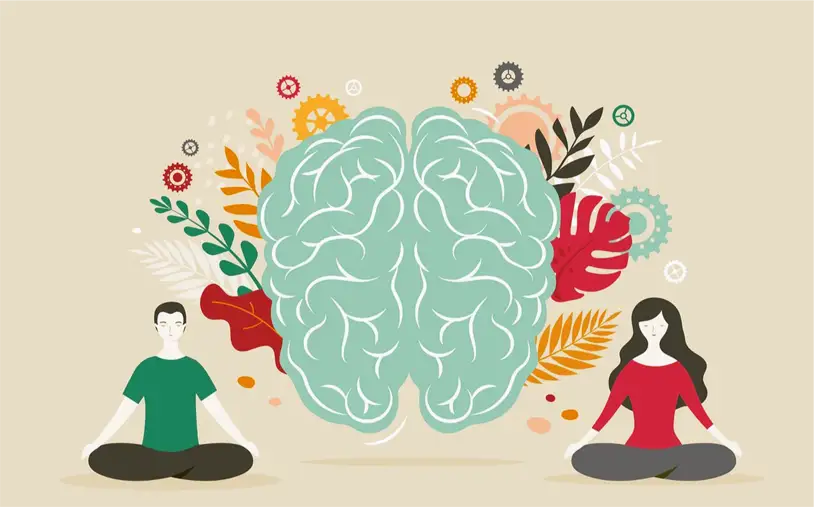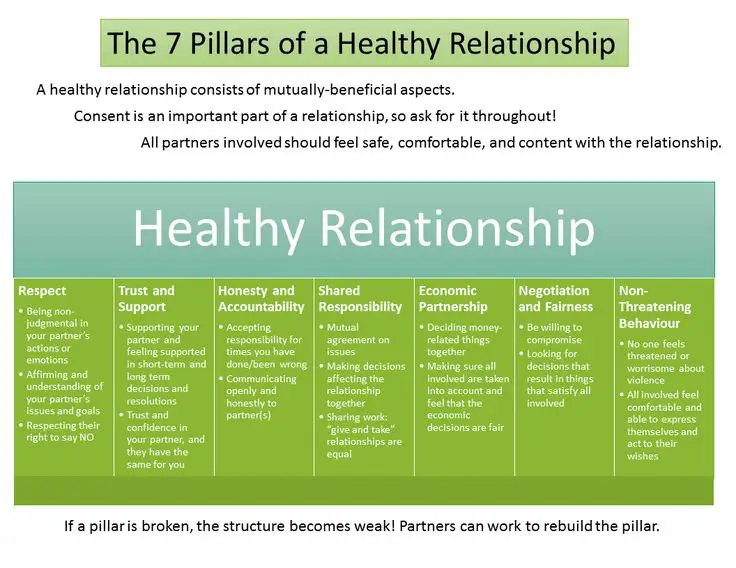Sexual wellness is an integral part of overall health, involving a respectful and positive approach …
Libido, commonly referred to as sexual desire, is an essential aspect of human life that influences …
Maintaining a healthy sex life is a vital component of overall well-being. It&nb…
Sexual wellness is a vital part of overall well-being that integrates physical, emotional, mental, and social health. It’s not just the absence of illness but a dynamic state of being that allows individuals to embrace and enjoy their sexuality fully and safely. Despite its importance, sexual wellness is often misunderstood or ignored due to cultural stigmas and lack of awareness.
This article delves into the multifaceted aspects of sexual wellness, offering detailed insights supported by scientific research and reliable statistics. From understanding your body and emotions to navigating societal influences and leveraging modern technology, sexual wellness is an achievable goal for everyone.
Physical Health as the Basis of Sexual Wellness

Physical health forms the foundation of sexual well-being. Healthy sexual function depends on various physiological factors, such as hormonal balance, cardiovascular health, and proper reproductive system functioning. Addressing these areas can significantly enhance intimacy and overall satisfaction.
Sexual Health and Disease Prevention
Sexually transmitted infections (STIs) are a global public health concern. The World Health Organization (WHO) reports that more than 1 million new cases of curable STIs — such as chlamydia, gonorrhea, syphilis, and trichomoniasis — occur daily worldwide. Regular testing is essential for sexually active individuals, especially those with multiple partners.
Vaccination also plays a critical role in prevention. For example, the HPV vaccine has been proven to prevent over 90% of cervical cancer cases caused by the virus. In countries like Australia, which implemented widespread HPV vaccination, the incidence of cervical cancer has dropped significantly.
The Role of Nutrition and Exercise
A balanced diet and regular exercise are powerful tools for enhancing sexual health. Foods rich in zinc, vitamin E, and omega-3 fatty acids — such as nuts, seeds, fish, and dark leafy greens — support reproductive health and hormonal balance. Physical activity improves circulation, which is critical for sexual arousal and performance. A study published in the Journal of Sexual Medicine found that individuals who exercise regularly report higher levels of sexual satisfaction and stamina.
Emotional and Mental Health in Sexual Wellness

The interplay between mental health and sexual wellness is profound. Emotional intimacy, self-confidence, and stress management all influence sexual desire and satisfaction.
The Impact of Stress and Anxiety
Chronic stress disrupts hormonal balance, reducing libido and performance. According to the American Psychological Association, 75% of adults report experiencing moderate to high stress levels. High cortisol levels, a result of chronic stress, suppress sex hormones like testosterone and estrogen, directly impacting desire.
Mindfulness practices, such as meditation and yoga, can reduce stress and improve sexual function. Research from Frontiers in Psychology shows that mindfulness-based therapies help individuals reconnect with their bodies and increase sexual satisfaction.
Body Positivity and Confidence
A study published in the International Journal of Sexual Health reveals that nearly 50% of individuals report body image concerns affecting their sexual relationships. Promoting self-acceptance and rejecting unrealistic beauty standards can significantly boost confidence and improve intimacy.
For those struggling with severe body image issues, therapy — such as cognitive-behavioral therapy (CBT) — is effective in addressing underlying insecurities. Couples therapy can also help partners support each other in building body confidence.
Consent and Communication: Pillars of Healthy Intimacy

Consent is an essential part of sexual wellness, ensuring that all participants feel respected, valued, and safe. It is not a one-time agreement but an ongoing, mutual understanding. A survey by the National Sexual Violence Resource Center found that 55% of respondents felt uncomfortable discussing consent with partners, highlighting a need for greater education and openness.
Open communication extends beyond consent. It includes discussing preferences, boundaries, and emotional needs. Partners who communicate effectively often report higher levels of satisfaction and trust in their relationships.
Education as the Cornerstone of Sexual Wellness

Comprehensive sexual education is a critical factor in promoting sexual wellness. Unfortunately, many regions lack adequate programs, leading to misconceptions and health risks.
Global Insights into Sexual Education
In countries like the Netherlands, where comprehensive sex education begins as early as age four, teenage pregnancy rates are among the lowest in the world — 3.2 births per 1,000 girls aged 15–19, compared to 16.7 per 1,000 in the U.S. This stark contrast highlights the importance of education in shaping informed attitudes toward sexuality.
Sexual education should cover topics such as anatomy, contraception, STI prevention, and the importance of consent. Beyond schools, online resources and telehealth platforms are filling gaps in accessibility.
Technology’s Role in Advancing Sexual Wellness

The digital age has transformed how individuals access information and resources related to sexual health.
Telemedicine
Telehealth services have become a discreet and convenient way to address sexual health concerns. According to a 2022 study, telemedicine consultations for sexual health topics increased by 35%, driven largely by the COVID-19 pandemic.
Fertility and Wellness Apps
Fertility tracking apps, used by over 50 million women globally, empower individuals to monitor reproductive health. Other apps focus on enhancing intimacy and improving communication between partners.
While technology offers valuable tools, users must ensure they rely on reputable platforms. Peer-reviewed studies and endorsements from healthcare providers are indicators of credibility.
Barriers to Sexual Wellness

Despite progress, several barriers hinder the achievement of sexual wellness:
- Stigma and Shame: Cultural and societal stigmas around sexuality often discourage individuals from seeking help or discussing their concerns. This is particularly prevalent in conservative societies.
- Access to Inclusive Healthcare: Marginalized groups, such as LGBTQ+ individuals, often face discrimination or inadequate services in healthcare systems. In a 2021 survey, only 22% of healthcare providers in the U.S. had received training on LGBTQ+ health needs.
- Misinformation: The internet is rife with myths and unreliable advice, emphasizing the importance of accessing trusted sources such as Planned Parenthood and the World Health Organization.
Practical Tips for Enhancing Sexual Wellness

- Regular Health Check-Ups: Schedule annual screenings for STIs and reproductive health.
- Healthy Lifestyle Choices: Eat nutrient-rich foods, exercise regularly, and manage stress effectively.
- Open Communication: Discuss desires, concerns, and boundaries with your partner.
- Education and Awareness: Stay informed about sexual health through reputable resources.
- Seek Professional Help: Don’t hesitate to consult specialists for physical or emotional concerns.
Sexual wellness is an integral part of a fulfilling life. It requires a balanced approach that includes physical health, emotional resilience, and informed decision-making. By breaking down taboos, embracing open dialogue, and utilizing modern resources, individuals can achieve greater intimacy and satisfaction.
Trusted Resources for Further Information:
- Planned Parenthood – Comprehensive information about sexual and reproductive health. Visit their official website here: Planned Parenthood.
- World Health Organization (WHO) – Authoritative guidance on global health topics, including sexual health and disease prevention. Explore their resources here: WHO Official Website.
- Mayo Clinic – Reliable medical information and expert advice on sexual and overall health. Learn more at: Mayo Clinic.
- American Sexual Health Association (ASHA) – Dedicated to improving public understanding of sexual health. Access their educational materials here: ASHA Sexual Health.

Emily Dailey
Sexual Wellness Editor
Emily Dailey has over 10 years of experience writing and curating content about sexuality and relationships. With a portfolio of 150+ articles, she is dedicated to promoting open conversations and helping people embrace their desires with confidence and understanding.
